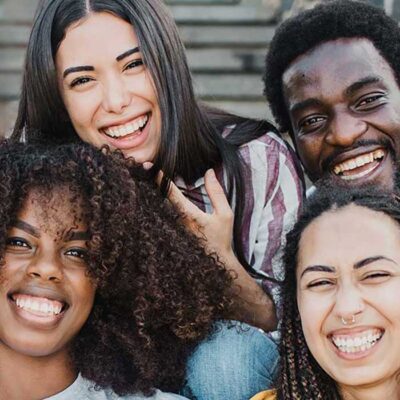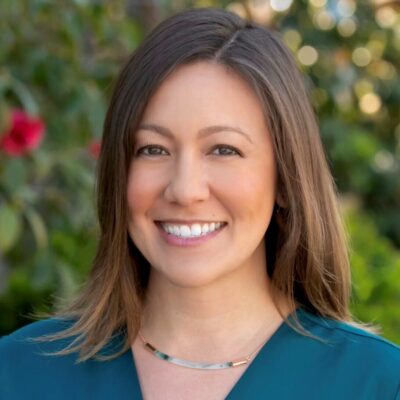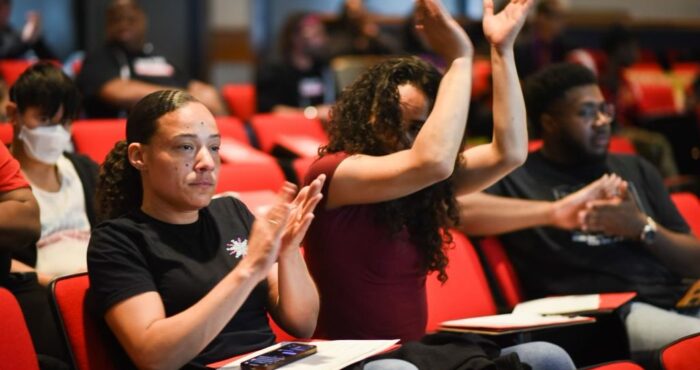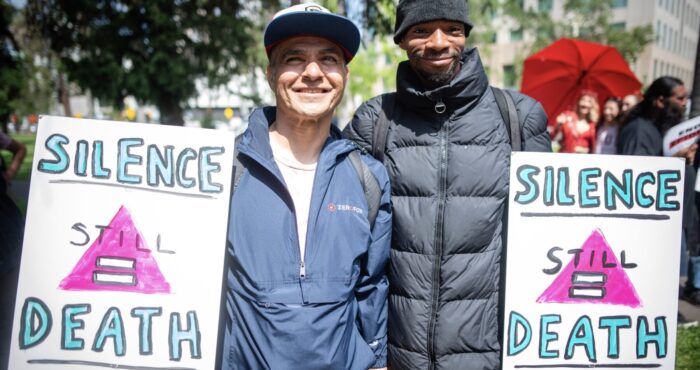Survivor’s guilt and trauma from surviving the early days of the AIDS epidemic are oftentimes cited as the reasons why HIV long-term survivors experience depression and other mental health symptoms. Now, the experience of living through a second devastating pandemic–COVID-19–is compounding the anxiety, sense of loss, and social isolation faced by some long-term survivors.
“COVID-19 has really brought up a lot of memories of friends dying from AIDS,” said Vince Crisostomo, a long-term survivor and director of aging services at San Francisco AIDS Foundation. “The images of hospitals being overrun–they’re similar to the images we saw in the early years of the AIDS epidemic. The scale of how many people have died is really scary. You just think, ‘Will I make it? Will I survive?”
Activists are calling for additional support to address the evolving mental health care needs of a growing population aging with HIV. This need is specifically called out in the San Francisco Principles, a call for resources and treatment specifically addressing the unmet needs of long-term survivors published by a group of activists including Crisostomo, and a 2021 San Francisco budget request to fund mental health care services for long-term survivors.
The budget request, for $300,000, would fund mental health coordination efforts in order to decrease barriers to accessing culturally competent mental health services.
“We have suffered through isolation and loneliness, the expense of medications and health care visits, declining physical health, untreated substance use and mental health problems, and the damage done to us by early HIV medications. We have been virtually forgotten, shoved to the sidelines by AIDS researchers and service providers, and by physicians who have not been trained to treat the unique problems of surviving with HIV,” said long-time survivor and activist Hank Trout, in an article describing the Principles.
“Many long-term survivors who lived through the early years of AIDS didn’t know whether they were going to live this long,” said Angel Vazquez, health educator with aging services. “Now they’re still here–but have lost relationships, friends, and families. They need to be able to regain a sense of resilience in order to integrate again into the community after COVID-19.”
“You have to keep in mind that people who have been living with HIV for many years also often experience comorbidities from HIV or the early HIV drugs,” said Dusty Araujo, manager of aging services at SFAF. “These additional health problems can really affect someone’s mental health when experiencing yet another pandemic. Especially if they’re more isolated because of COVID-19 and don’t have strong support from family or other loved ones nearby.”
“COVID-19 has affected so many people, from the disabled, to the working class, to people who all of a sudden have found themselves job insecure,” said Michael Rouppet, an activist and long-term HIV survivor. “Everything devolved into chaos. I think COVID-19 really took the mask off and showed how vulnerable we really are–especially for people who are at risk of losing their housing and being evicted. Housing really is healthcare, and it is a component of mental health. Even though we have an eviction moratorium at the moment, what happens once rent becomes due? These issues are all inter-related. Many long-term survivors are experiencing the overlapping effects of COVID-19, housing insecurity, isolation, substance use, and mental health issues.”
Rouppet said that this is one reason why the San Francisco Principles specifically call out the need for on-demand, reasonably-priced (or free) access to mental health care for long-term survivors.
“There’s so much unmet need right now,” said Rouppet. “A lot of people are in crisis. We’re just not meeting the need, and we’re not moving quickly enough to meet the needs of an aging population of people living with HIV. Here I am in my 50s, and I’m looking 20 years ahead to how many of us will still be here that will need these types of services.”
Holistic models of care–aimed both at treating medical condition but also improving quality of life–are “necessitated” by the combined experience of HIV, comorbidities, and aging-related health issues, say Meredith Greene, MD, director of UCSF’s Golden Compass, and colleagues in an article published in the Journal of the International Association of Providers in AIDS Care.
A component of holistic care includes connection to community–one focus of the Elizabeth Taylor 50-Plus Network and aging services at SFAF. Although the group is not specifically a therapy or mental health group, services focus on building the resilience of the aging community.
“Our focus is really on socializing and making sure that people have a positive community they can connect with,” said Crisostomo. “Being happy with your life–because of your social connections–is so important to aging, and living longer. You have to stay connected and get involved, so you don’t become isolated.”
“When people are going through mental health issues and crisis, they might turn to drugs and alcohol,” said Rouppet. “But we need harm reduction resources, to lessen the risk of overdose. We need ways for people to get community support. The opposite of isolation is connection. And that has to be instrumental in getting people back connected to the community.”

Interested in this issue? Get involved!
Join the HIV Advocacy Network. Since the early days of the HIV epidemic, AIDS activists have mobilized to fight for funding, equality and our lives. We’re applying that legacy to the modern-day context by bringing community activists together to advocate for critical policies that affect us all. If you live in the Bay Area, make your voice heard and join us today.










